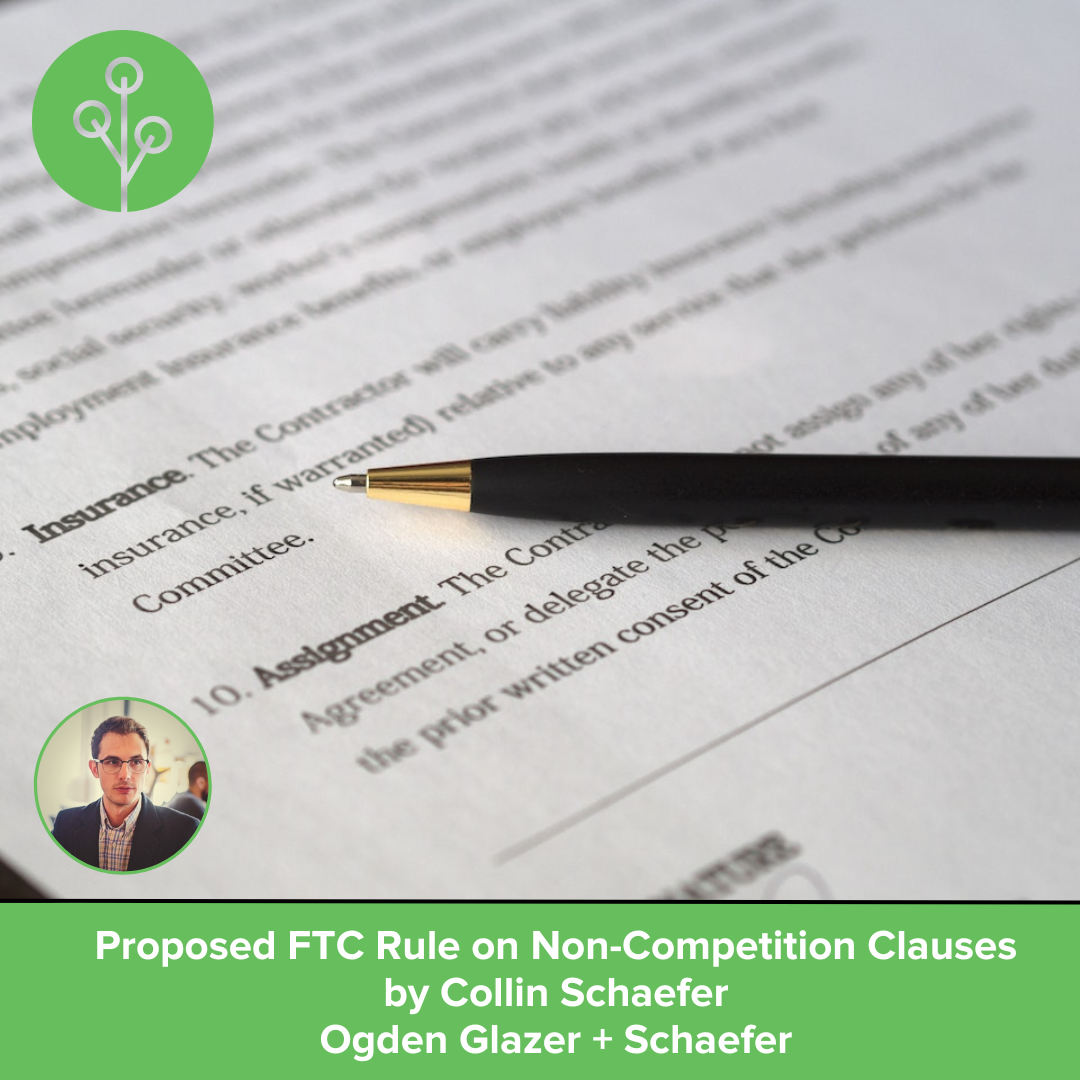Introduction: If you’re a small business owner, you’ve likely heard about the proposed rule by the Federal Trade Commission (FTC) to ban non-compete clauses. You might be wondering what this means for your business and what you should do if the rule becomes law. Let’s break it down.
Understanding Non-Compete Clauses: Non-compete clauses are those provisions in employment agreements that seek to prevent employees from working for a competitor or starting a similar business after leaving your company. This specific prohibition, “working for a competitor” or “becoming a competitor” are important to keep in mind. Technically, a “customer non-solicit” (i.e. the employee is barred from contacting customers for similar services) or “non-disclosure agreement” (i.e. the employee cannot divulge your company’s confidential information) are not “non-competes” but they are often, so broadly drafted, that they have the effect of being a non-compete, although called something different.
What the FTC Wants to Do: The FTC is considering a rule that would make these non-compete clauses illegal. More importantly, if your agreements include “non-disclosure” provisions or “non-solicit” provisions that are so broad they act as non-competes, those will be barred as well. Finally, the rule would be “backward looking” meaning that even if an employee executed an employment agreement before the new rule was enacted, your company would be required to update the contract if it contains a prohibited provision, or risk it being deemed unenforceable (and incurring whatever other penalties the final FTC rule contains). The idea behind this rule is to give employees more freedom to find better job opportunities and, at the same time, encourage competition in the job market.
What You Need to Know: Here are some key takeaways for small business owners:
1. Stay Informed: Keep an eye on the progress of this rule. As of now, it’s still in the proposal stage, and it won’t become law overnight. Additionally, the US Chamber of Commerce has already said it would file a lawsuit if the rule passes as drafted.
2. Review Your Contracts: Luckily, Wisconsin has pretty strict rules that must be followed in order for non-competition (and other “restrictive covenants”) provisions to be enforceable already. If you’ve been following the law in Wisconsin to date, and your agreements include “customer non-solicits” and “confidentiality\non-disclosure” provisions, you should be in pretty good shape. However, if you have straight non-competition provisions, that is something that will likely need to be changed\removed from your agreements if the rule passes.
3. Be Open to Change/What is Confidential: The job market is evolving, and employment practices are too. Be open to adapting your business strategies to align with new regulations. Its always a good idea to take a minute and think about what information your employees are exposed to that is actually confidential, or needs to be kept confidential to protect the viability of your business. Is there a lot of information in the “must protect” category? Or, is there only a little bit of information? If its only a little bit of information, can you firewall the exposure of that information to a select group of people or implement processes so employees don’t need access to it at all?
4. There Will Be Exceptions The proposed rule will contain exceptions for the instances when a company is sold (just like current WI law). Given the intense discussion around this proposed rule, I suspect there will be other exceptions as well. (Potentially a salary ladder like the recent, and very similar law, that was enacted in Illinois?).
Thanks for reading.

